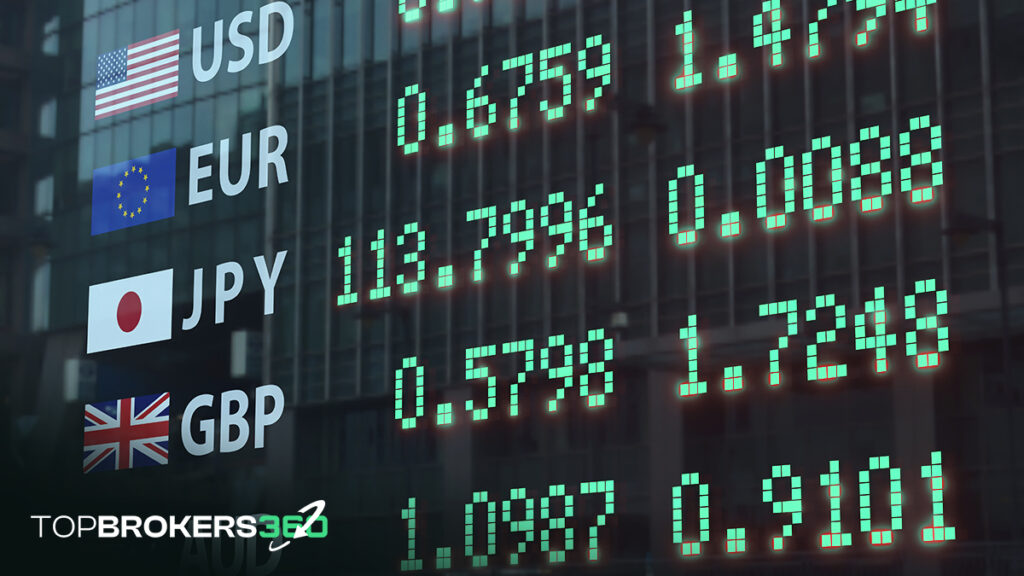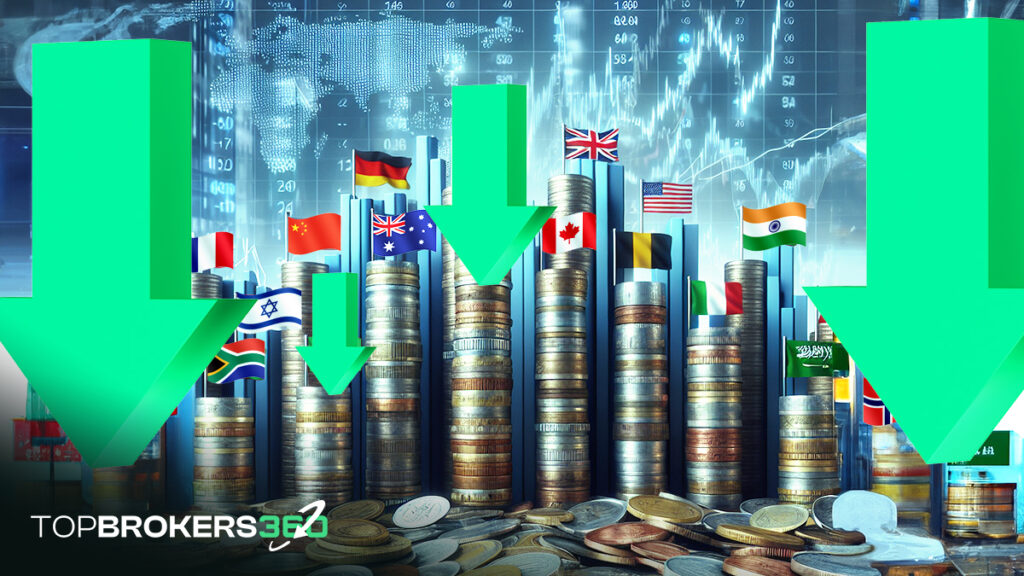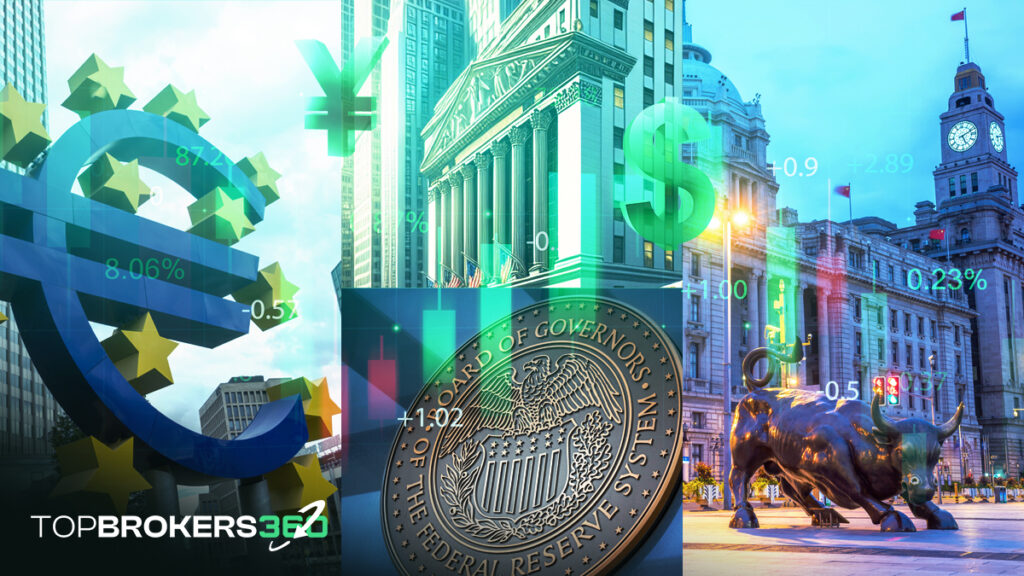- 1. Understanding the Global Economy
- 2. Market Forces Factors Influencing Market Trends
- 3. Currency and Exchange Rates
- 4. The Impact of War on the Stock Market
- 5. Short-term vs. Long-term Effects of War
- 6. The Influence of Global Factors on National Economies
- 7. Currency Warfare and Market Trends
- 8. How Global Events Influence the Economy in Your Country
- 9. The Role of Economic Factors in Market Trends
Global events can greatly influence market trends, making it important for investors, businesses, and policymakers to understand these effects.
These events can cause both short-term market volatility and long-term economic trends. Government policies and central bank actions, like changes in interest rates and taxes, directly affect financial markets by changing economic conditions. International trade and investment impact a country’s economy and currency strength. Market movements are also driven by speculation and expectations about the future. Supply and demand dynamics, influenced by these factors, ultimately shape prices and create market trends.
This article will explore important economic factors, the role of exchange rates, and the effects of geopolitical events, natural disasters, and global trade developments on market trends.

Understanding the Global Economy
Definition of the Global Economy
What is global economy?
The global economy refers to the interconnected economic activities of countries worldwide. It includes all international trade, investment, and financial transactions, forming a network where economic activities in one country can affect others.
How Economies Are Interconnected
Role of International Trade and Investment
Market Forces Factors Influencing Market Trends
Government Policies and Central Bank Actions
International Transactions
Speculation and Expectations
Supply and Demand Dynamics
Currency and Exchange Rates
Importance of Exchange Rates

Factors Influencing Exchange Rates
- 1. Inflation Differentials: Countries with lower inflation rates typically see their currency appreciate because their purchasing power increases relative to other currencies.
- 2.Interest Rates: Higher interest rates offer better returns on investments in a country's assets, attracting foreign capital and causing the currency to appreciate.
- 3. Current Account Deficits: A country that imports more than it exports (current account deficit) may see its currency depreciate due to higher demand for foreign currency.
- 4. Public Debt: High levels of public debt can lead to inflation and currency devaluation, as investors fear the country might default or print more money.
- 5. Terms of Trade: Improved terms of trade (higher export prices relative to import prices) can lead to a stronger currency.
- 6. Economic Performance: Strong economic performance attracts foreign investors, increases demand for the country's currency, and causes appreciation.
Currency Warfare
The Impact of War on the Stock Market
Historical Examples of War Impacting Stock Markets
How Does War Affect the Stock Market?
- Investor Sentiment: Wars create uncertainty, causing fear and panic among investors. This often leads to sell-offs and market declines as investors seek safer assets.
- Supply Chain Disruptions: Conflicts can disrupt global supply chains, affecting production and trade. Companies reliant on affected regions may see their stock prices drop due to interrupted operations and increased costs.
- Government Spending: Wars typically lead to increased government spending on defense, which can boost certain sectors like defense contractors. However, this can also lead to higher deficits and inflation, negatively impacting other areas of the economy.
Short-term vs. Long-term Effects of War
- Short-term: In the immediate aftermath of a conflict, markets often react negatively due to uncertainty and fear. Prices of commodities like oil may spike, and defensive stocks may outperform.
- Long-term: Over time, markets may stabilize as the economic impact of the war becomes clearer. Reconstruction efforts and increased government spending can stimulate economic activity, potentially leading to a market recovery.
The Influence of Global Factors on National Economies
How Global Factors Affect National Economies
Trade Policies and Agreements
Political Stability and Geopolitical Events
International Agreements
Countries Affected by Global Economic Shifts
- China: China's rapid economic growth has been fueled by its integration into the global economy through trade and investment. However, trade tensions with the US have led to economic uncertainties and shifts in global supply chains.
- Greece: The Greek debt crisis highlighted how interconnected economies are vulnerable to global financial markets. International bailouts and austerity measures imposed by the EU significantly impacted Greece's economy.
Role of Multinational Corporations and Foreign Investment

Currency Warfare and Market Trends
Definition of Currency Warfare
Currency warfare, also known as competitive devaluation, occurs when countries intentionally devalue their currencies to gain an advantage in international trade. By making their exports cheaper and imports more expensive, countries aim to boost domestic industries and improve their trade balances.
An example of currency warfare is the “currency war” between the United States and China. The US has accused China of keeping its currency, the yuan, artificially low to make Chinese goods cheaper in international markets, thereby boosting exports.
Impact of Currency Manipulation on Global Trade
- Increased Export Competitiveness: A devalued currency makes a country's goods and services cheaper for foreign buyers, potentially leading to increased exports.
- Import Costs: While exports may benefit, imports become more expensive, raising costs for businesses that rely on foreign goods and potentially leading to higher inflation.
- Trade Imbalances: Persistent currency manipulation can lead to trade imbalances, where some countries have significant surpluses while others face deficits. This can create tensions and lead to retaliatory measures.
Ripple Effect on Stock Markets and Economic Stability
- Stock Market Volatility: Currency devaluation can lead to market uncertainty and volatility. Investors may react to sudden changes in currency values, affecting stock prices.
- Investment Flows: Currency fluctuations can influence foreign investment decisions. Investors may pull out of countries with unstable currencies, leading to capital flight and further economic instability.
- Economic Uncertainty: Persistent currency manipulation can create long-term economic uncertainty, affecting business planning and investment decisions. It can also lead to competitive devaluations by other countries, increasing global economic instability.
How Global Events Influence the Economy in Your Country
Analysis of Specific Global Events
- Brexit: The UK's decision to leave the EU created significant uncertainty for businesses operating in both regions. Trade agreements had to be renegotiated, impacting supply chains and investment decisions.
- US-China Trade War: Tariffs imposed by the US and retaliatory measures by China disrupted global supply chains, affecting countries dependent on trade with these economic giants. This led to increased costs for businesses and shifts in global trade patterns.
- COVID-19 Pandemic: The pandemic caused unprecedented economic disruptions worldwide. Lockdowns and restrictions led to a decline in economic activity, unemployment surged, and governments implemented massive fiscal and monetary stimulus measures to mitigate the impact.
Influence on Local Market Trends
- Trade Policies: Changes in trade policies can open or close markets for local businesses. For example, tariffs on steel imports can benefit domestic steel producers but increase costs for industries relying on steel.
- Investment Flows: Global events can affect foreign investment in your country. Political stability, favorable trade agreements, and economic growth attract foreign investors, boosting local markets.
- Consumer Behavior: Global trends, such as shifts towards sustainable products or technological advancements, influence local consumer preferences and market demand.
Strategies for Investors and Businesses
- Diversification: Diversifying investments across different regions and sectors can reduce the risk associated with global economic fluctuations.
- Monitoring Economic Indicators: Keeping an eye on key economic indicators, such as GDP growth, inflation, and trade balances, helps in making informed investment decisions.
- Adapting to Market Changes: Businesses should stay agile and adapt to changes in consumer behavior and market conditions driven by global events. This may involve shifting supply chains, investing in new technologies, or exploring new markets.

The Role of Economic Factors in Market Trends
Global events significantly impact market trends. The interconnected global economy means events in one region can affect markets everywhere. Key economic factors such as government policies, central bank actions, geopolitical tensions, and natural disasters shape market dynamics.
Exchange rates, international trade, and currency warfare play major roles in market trends. Wars and geopolitical conflicts create uncertainty, disrupt supply chains, and affect investor sentiment, causing stock market fluctuations.
National economies are influenced by global trade policies, investment flows, and international agreements. Understanding these influences helps businesses adapt and investors make informed decisions. Strategies like diversification and monitoring economic indicators are crucial for navigating market complexities.
Staying informed about global events and their economic impacts is essential for managing market trends and mitigating risks in a dynamic economic environment.
➟ Find the best broker for you in our Comparison Review articles!
